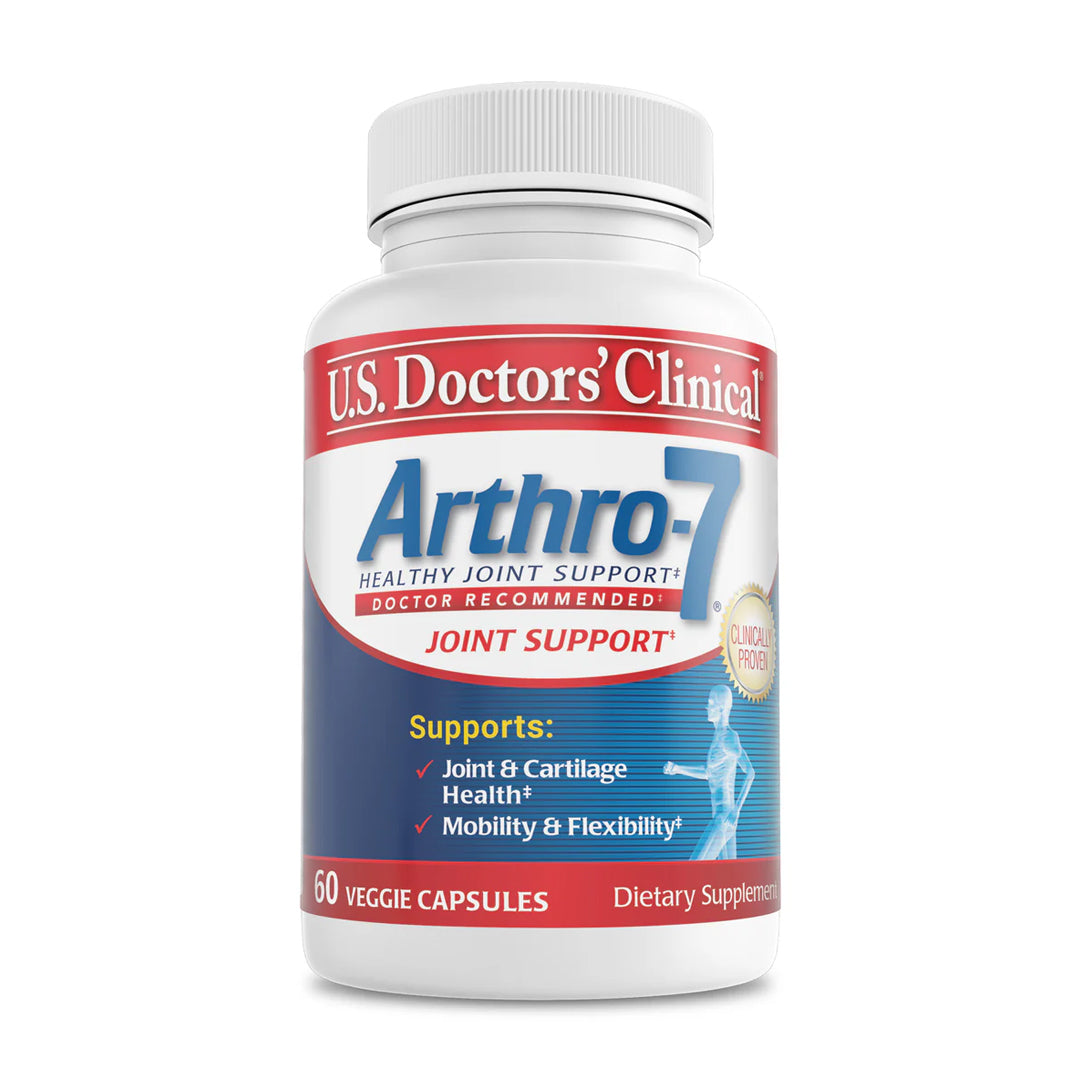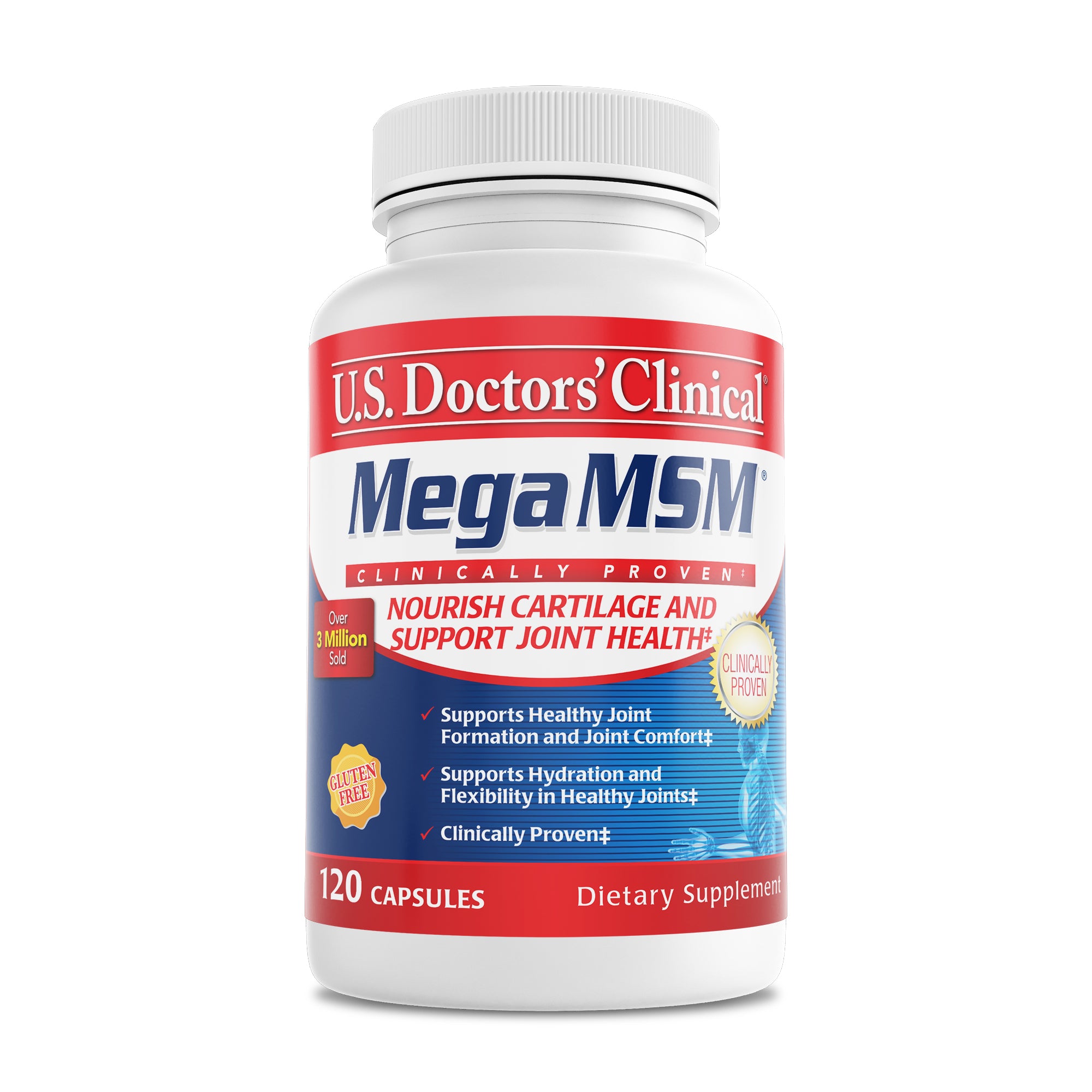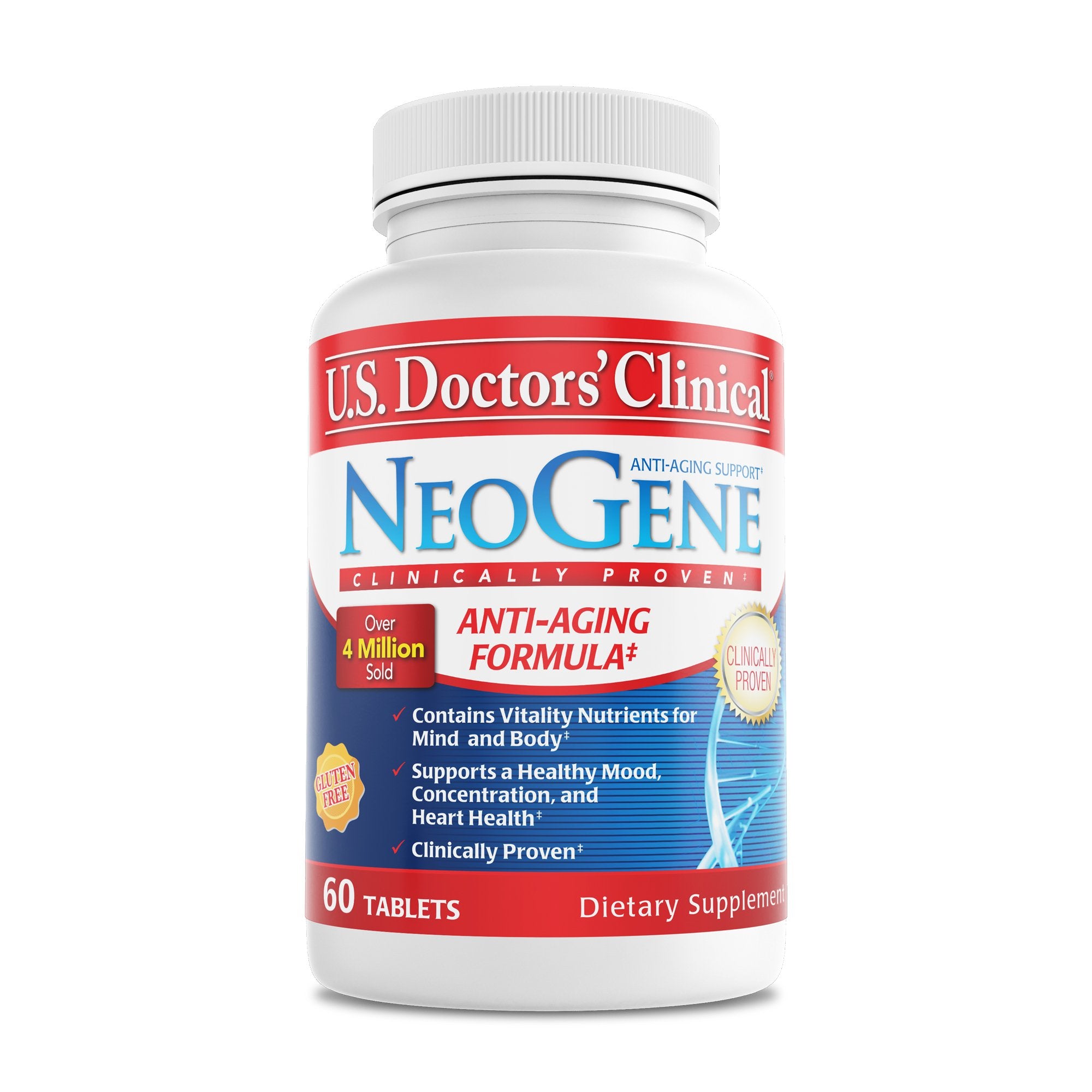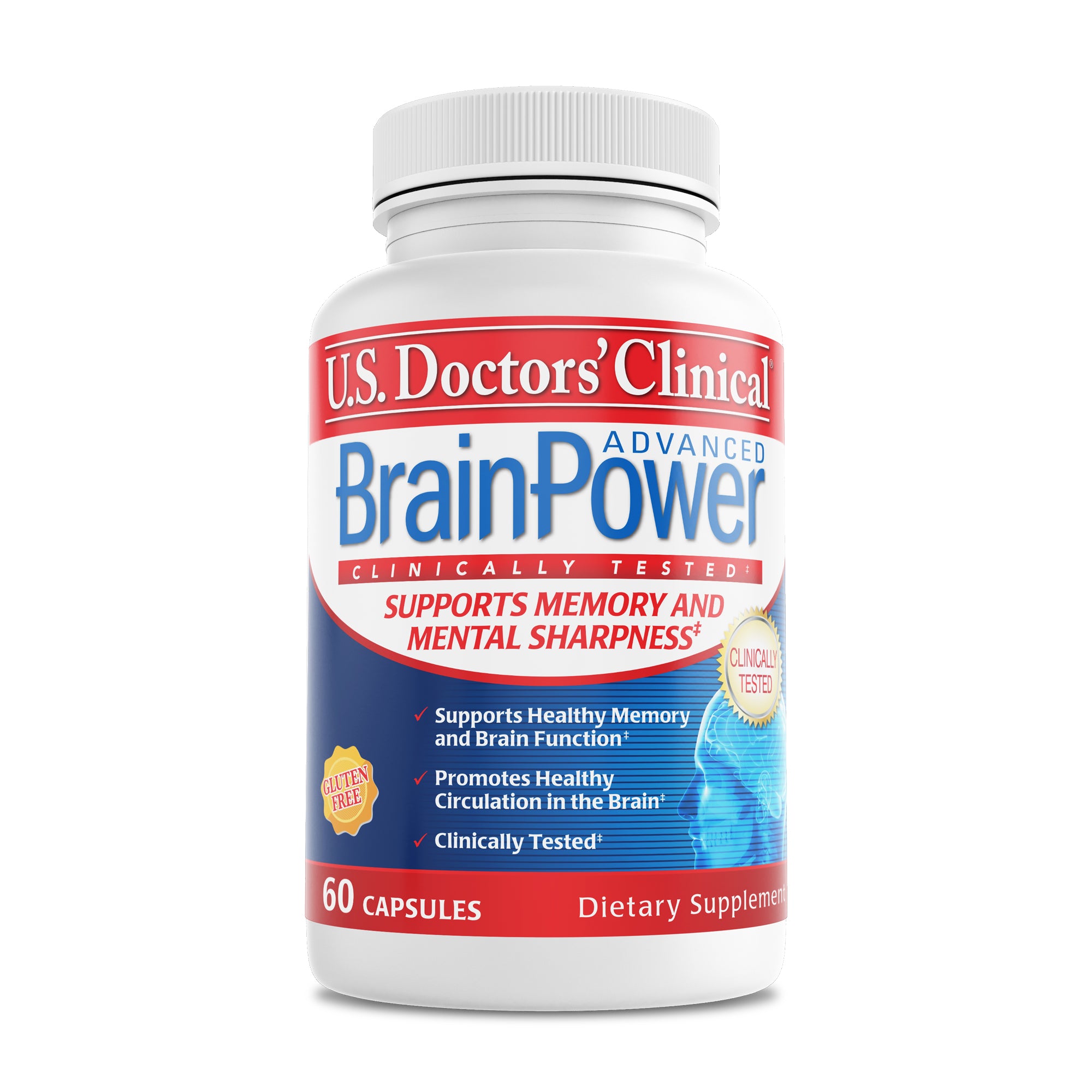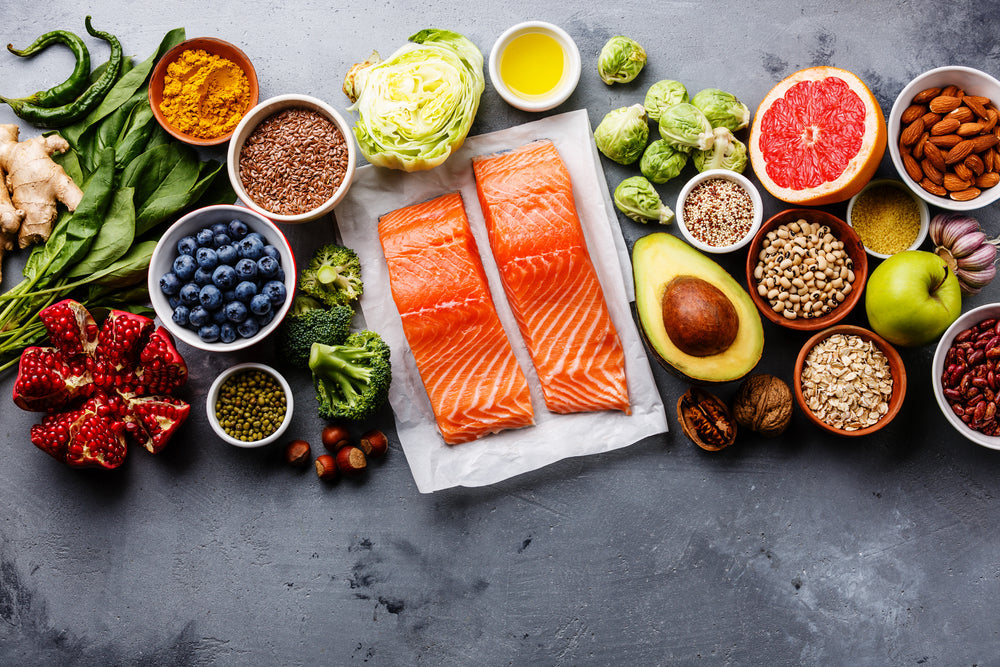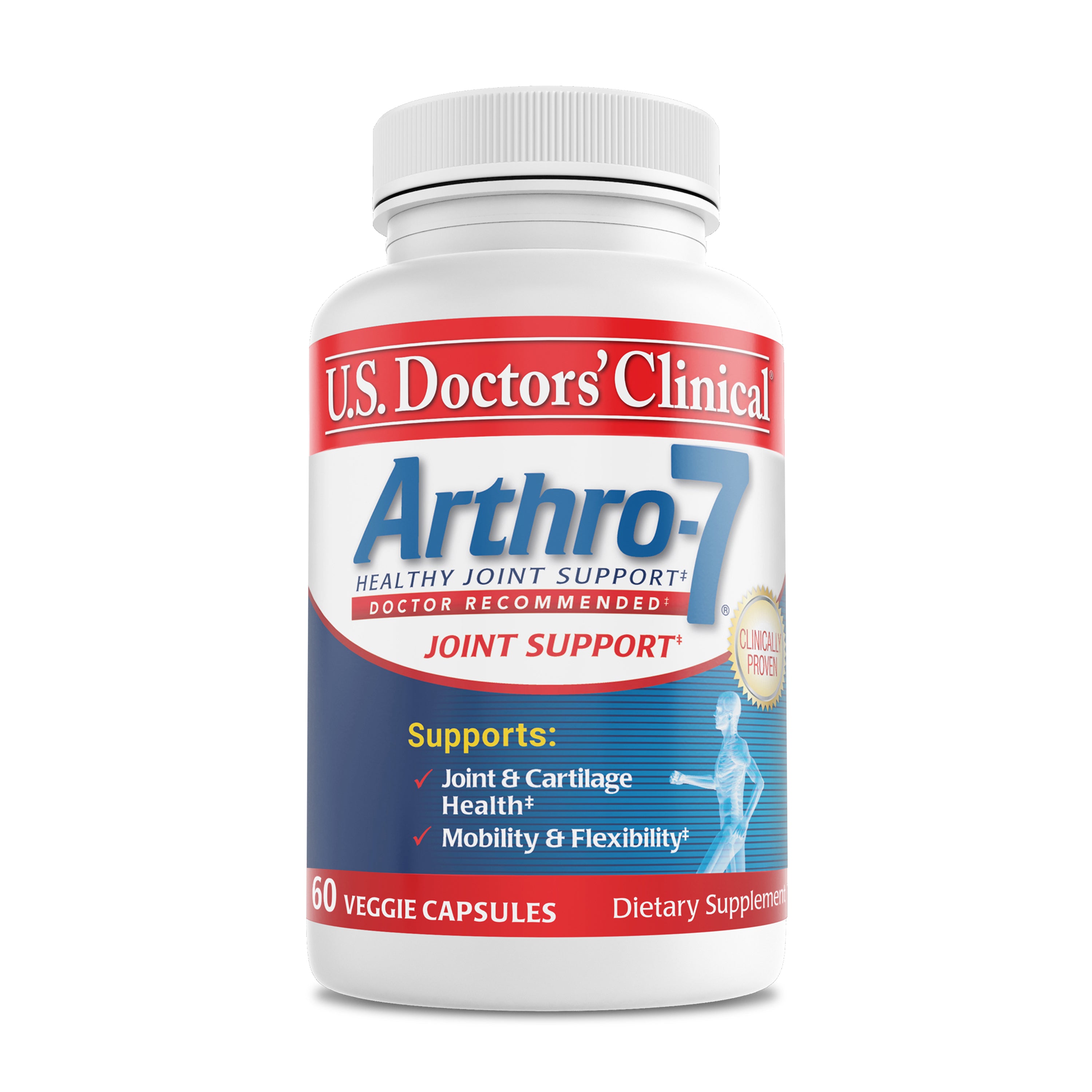11 Foods You Should Be Eating for Joint Health
Whether you are 35 years old or newly retired, joint health should be a priority. Oftentimes, people aren’t concerned about their joints until they get older, but what we do in our younger years can play a major role in our joint health later in life.
For example, years of repetitive movements can cause wear and tear on the joints and tendons and influence the breakdown of cartilage. Similarly, jobs that require heavy lifting or long periods of standing can contribute to joint discomfort in the future. As we age, the fluid that lubricates our joints starts to decrease, cartilage gets thinner, and range of motion can become limited.
The good news is that supporting your body with the right foods throughout your lifetime can help provide the nutrients you need to feel better as you age.

Foods to Avoid
No matter how many nutritious foods you add to your diet, their benefits can be cancelled out by unhealthy foods. Some foods are known to increase inflammation and avoiding them is strongly recommended. These include:
- Sugary Treats and Drinks
- Dairy
- Foods High in Trans and Saturated Fats
- Refined Carbohydrates
- Processed Foods
- Fast Food
Foods to Embrace
There are several foods that can help support joint comfort and mobility to keep you on your feet and doing the things you love. Add these foods to your diet for long-term joint nourishment!
1. Olive Oil
Adding olive oil to your diet is the joint-health equivalent of taking your car to Jiffy Lube. Your car needs lubrication to function properly and so do your joints. Olive oil can help naturally lubricate your joints to discourage them from rubbing together uncomfortably.
In addition to containing essential omega-3 fatty acids, olive oil has a compound that helps protect against enzymes that are known to induce inflammation.
2. Fatty Fish
Like olive oil, fatty fish like salmon are packed with omega-3 fatty acids that help support the joints. Omega-3s are highly regarded because they can interrupt immune cells and enzymes that can cause inflammation.
To fully reap the benefits, eating 3 to 4 ounces of salmon, tuna, sardines, and mackerel at least two times a week is recommended.
3. Fruit

While fruit is often critiqued for being high in sugar, many varieties are valued for their antioxidant content.
- Blueberries: High in compounds that help discourage the body’s inflammatory responses.
- Apples: An apple a day…might just live up to the hype! Apples are high in vitamins A and C, antioxidants, and fiber.
- Pineapple: An enzyme called bromelain can be found inside a pineapple’s stem and core. Next time you chop up a pineapple, save the core and blend it into a smoothie to enjoy the inflammation-soothing benefits.
- Tomatoes: Rich in potassium and three antioxidants, tomatoes provide a host of benefits to the body. It’s important to note, the highest concentration of beneficial compounds is found in a tomato’s skin.
4. Green, Leafy Vegetables
Pile your plate high with dark green, leafy vegetables like broccoli, spinach, Brussels sprouts, and kale up your intake of vitamins A, C and K—all antioxidants that can help support the body. These vegetables also provide calcium to nourish the bones.
5. Garlic
While it’s infamous for causing bad breath and warding off vampires, garlic offers a range of health benefits. It’s primarily made up of a compound that has antibacterial, antivirus, antifungal, and antioxidant properties. Plus, it’s very easy to add to your diet.
6. Turmeric

Turmeric has been praised for its medicinal properties for thousands of years thanks to curcumin, its most active compound. Curcumin is the source of turmeric’s signature yellow color and is known for its soothing properties. While you can add turmeric to your recipes, the best way to add curcumin to your diet is with a supplement because it’s delivered in a more potent form.
7. Dark Chocolate
While sweets are typically discouraged, dark chocolate is the exception. Quality dark chocolate with cocoa content over 70% contains fiber, iron, magnesium, copper, manganese, potassium, phosphorus, zinc, and selenium. As if that wasn’t enough, it also contains numerous beneficial antioxidants. Enjoy a square of 70% dark chocolate for joint health!
8. Whole Grains

Whole grains provide the body with protein, fiber, B vitamins, antioxidants, and essential minerals. Although many foods may sound like they contain whole grains, look specifically for these key words:
- Whole Oat
- 100% Whole Wheat Flour
- Brown Rice
- Whole Rye
- Whole-Grain Barley
- Wild Rice
- Bulgar
- Quinoa
Beware of buzzwords like “multigrain," "100% wheat," and "organic," as they are often used as marketing tools to encourage the purchase of foods that don’t truly contain whole grains. The best way to ensure you’re buying a whole grain food is to make sure the ingredients list contains the word “whole” as a description of the grain. It should also be the first ingredient on the list.
9. Beans
Beans really are a magical fruit. Naturally gluten-free and a good source of protein and fiber, beans are also full of iron, folic acid, zinc, and potassium. Choose from chickpeas, kidney beans, pinto beans, black beans, soybeans, and lentils.
If beans are new to your diet, we suggest introducing them slowly and drinking a lot of water to reduce your chances of feeling gassy.
10. Seeds
Eating like a bird typically has a negative connotation, but a diet rich in seeds has its benefits. Flax and chia seeds specifically contain high amounts of omega-3s, magnesium, and fiber. Because they are small and relatively tasteless, adding seeds to your daily smoothie, salad, or oatmeal is extremely easy.
11. Nuts
Like seeds, nuts are small but mighty. Packed with omega-3s, antioxidants, and a variety of essential nutrients, nuts are a quick easy snack that provide major perks. Reach for almonds, pine nuts, hazelnuts, pecans, walnuts, and pistachios to help support the joints and connective tissue.
Joint Health Made Easy
Arthro-7 was created for those who find it difficult to include these foods in their diet on a daily basis. Many of the vitamins found in the foods mentioned above are included in Arthro-7’s formula.
The Arthro-7 formula contains 7 synergistic support ingredients: collagen, MSM, vitamin C, CMO, bromelain, lipase, and turmeric. While each ingredient is beneficial on its own, they provide comprehensive support when taken together. We suggest taking Arthro-7 daily to help provide long-term nourishment and joint support.
